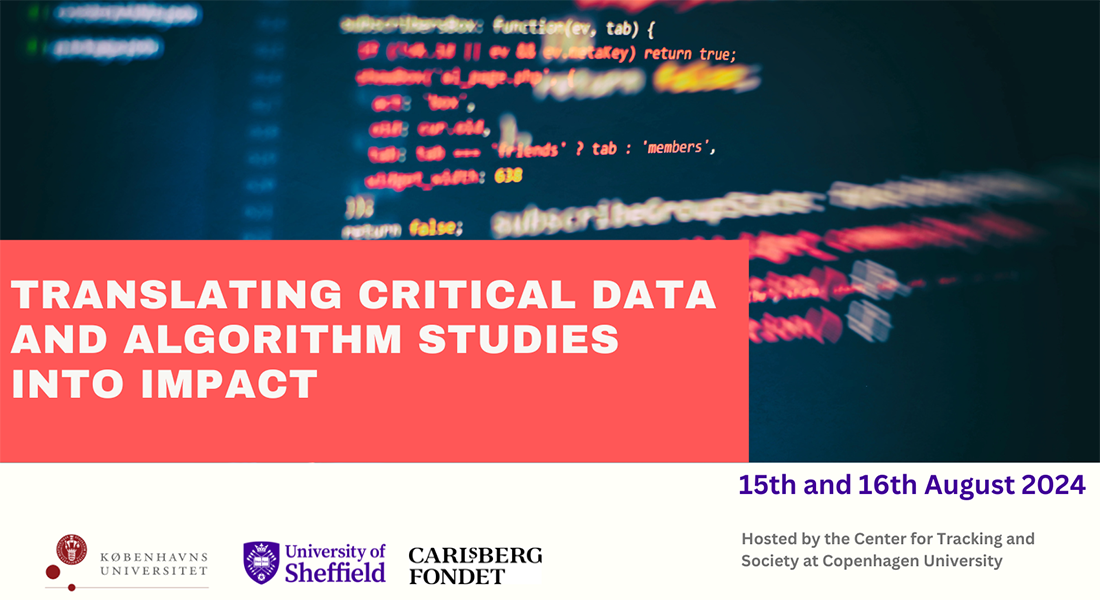Translating critical data and algorithm studies into impact
How can scholars within critical data and algorithm studies influence people and organizations to think about datafication in a different way that will (hopefully) produce better decisions and societal outcomes than would have been achieved without the presence of their work? Join us for a two-day workshop to discuss impact related activities.

Datafication, the process of quantifying every aspect of life so it can be tabulated, analyzed, and recirculated into practice, presents a profound paradigm shift in society and a challenging object of inquiry for scholars across disciplines. Although digital technologies, most recently AI, have been praised for the endless possibilities, they allegedly provide to improve society, a growing body of literature, principally emanating from critical data and algorithm scholars has pointed toward the negative and often unintended effects of data-driven technology on society.
Critical data and algorithm studies have emerged as an important counterforce to the ever-pervasive hype of data and algorithms in society, offering both theoretical discussions, critique, and rigorous empirical work about the mutual shaping of data, technology, and society. Despite these scholarly efforts, the field however still struggles to gain attention in public discourse. Such work needs to be translated into public discourse, as the political and societal dimensions of datafication become increasingly visible.
Bringing together a mix of upcoming researchers and more established and impactful scholars across the interdisciplinary field, we will address the following questions in both a theoretical and practical manner.
- What is the role of critical data and algorithm studies in society?
- How can researchers communicate their findings to audiences outside of academia in a meaningful way?
- How to collaborate across academia, the private sector, and the public sector and generate a positive impact in different spheres of the society?
This workshop is a collaboration between the Center for Tracking and Society at Copenhagen University and the Information School at Sheffield University, therefore leveraging the substantial international networks of these cutting-edge research centers. By bringing together a group of established and upcoming researchers, our aim is to reflexively engage with our own role as interdisciplinary social scientists and how we might improve and think through the communication of findings with affected communities, policy makers, bureaucrats, the private sector, trade unions, citizens and/or others.
The aim of the workshop is three-fold.
- Provide a platform for scholars associated with critical data and algorithm studies to discuss their role as researchers of technological change.
- Initiate and establish a network of knowledge-exchange on impact-related activities in the field of critical data and algorithm studies. As part of this effort, we will publish public resources online after the workshop to share the knowledge produced with other researchers.
- Provide a safe and friendly environment to discuss potential collaborations to develop impact-related activities and products (e.g dialogue events or public sector guidelines)
Programme
Please extract all details about the programme and the speakers from the Workshop Brochure.
Map of South Campus
View directions.
View on map of the Faculty of Humanities - South Campus.
View map of South Campus (pdf).
